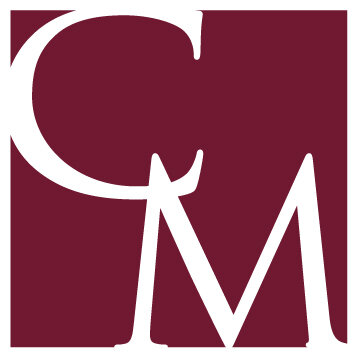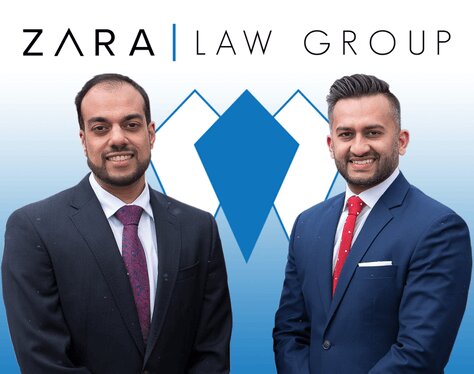Best Juvenile Law Lawyers in Illinois
Share your needs with us, get contacted by law firms.
Free. Takes 2 min.
Or refine your search by selecting a city:
List of the best lawyers in Illinois, United States
About Juvenile Law in Illinois, United States
Juvenile law in Illinois focuses on legal matters involving minors, typically individuals under the age of 18. This area of law covers issues such as juvenile delinquency, child protection, dependency cases, truancy, and emancipation. Instead of treating juveniles as adults, the Illinois legal system aims to rehabilitate and support children and teenagers while keeping their best interests in mind. The process is designed to offer guidance and services in hopes that minors can grow into responsible adults, rather than placing emphasis on punishment.
Why You May Need a Lawyer
There are many situations where you may need the advice or representation of a lawyer experienced in juvenile law in Illinois. Some of the most common include:
- Your child is facing charges for a delinquent act or crime.
- You are a minor facing legal action and unsure of your rights.
- The Department of Children and Family Services (DCFS) has opened an investigation involving your family.
- A child is at risk of removal from your home due to allegations of abuse or neglect.
- You want to understand or contest a court order concerning a minor.
- A minor wishes to be legally emancipated from their parents or guardians.
- You are seeking to reinstate parental rights or contest the termination of parental rights.
- Your child is involved in truancy proceedings or school disciplinary hearings with potential legal consequences.
In these and other circumstances, a lawyer can help clarify your rights and options, navigate complex legal procedures, and offer valuable support throughout the case.
Local Laws Overview
In Illinois, juvenile law is governed by the Juvenile Court Act, which sets forth the rights of minors and their families, court procedures, and the criteria for intervention by the state. Key points include:
- Juvenile courts handle most cases involving minors accused of breaking the law, dependency issues, and child protection.
- Delinquency: If a minor is charged with an offense that would be considered a crime if committed by an adult, the case is typically heard in juvenile court. The goal is rehabilitation, not punishment.
- The age of majority in Illinois is 18, though some serious crimes by older teens may be transferred to adult court through a process called "transfer" or "waiver."
- Dependency and child protection: If a child is believed to be abused, neglected, or dependent, the state can intervene to ensure their safety. This may involve court hearings, foster care, or services for the family.
- Emancipation: Minors over 16 may petition the court to be declared emancipated, granting them legal adult status with certain limitations.
- Juvenile records are often confidential, but some types of offenses or repeat offenses may be accessible to certain parties or in specific contexts.
Illinois also has specialized courts and resources aimed at supporting minors and families, such as mental health services, substance abuse programs, and diversionary programs designed to prevent future legal trouble.
Frequently Asked Questions
What is the age limit for juvenile court in Illinois?
In Illinois, juvenile court generally has jurisdiction over minors under the age of 18. Some exceptions apply, especially for serious criminal offenses.
Can a juvenile be tried as an adult in Illinois?
Yes, in certain circumstances, especially for violent felonies or repeat offenses, a juvenile’s case can be transferred to adult court through a legal process. This is more likely for teens aged 16 and older.
Are juvenile court records public in Illinois?
Most juvenile court records are confidential and not accessible to the general public. However, some records may be available to specific parties, like law enforcement or in future court proceedings.
What happens if DCFS is involved?
The Department of Children and Family Services investigates allegations of abuse, neglect, or dependency. They may work with the courts and could recommend services, or, in some cases, seek removal of the child from the home.
How does juvenile detention work in Illinois?
Juvenile detention centers in Illinois are separate from adult jails and focus on supervision, education, and rehabilitation. Detention is usually short-term, pending court hearings or placement decisions.
Can a juvenile get legal representation?
Yes. Minors have the right to a lawyer in delinquency cases and some child protection cases. If a family cannot afford a lawyer, the court will typically appoint a public defender.
What is emancipation, and how does it work?
Emancipation is a legal process where a minor (usually 16 or older) asks the court for adult status. The minor must show financial independence and maturity. The court decides on a case-by-case basis.
Can juvenile records be expunged in Illinois?
Yes. In many cases, juvenile records can be expunged if certain criteria are met. The process varies based on the nature of the offense and the outcome of the case.
What rights do parents or guardians have?
Parents and guardians generally have the right to be notified about proceedings, to participate in hearings, and to legal representation in certain cases. However, the court’s priority is always the best interest of the minor.
What if my child is facing school discipline and criminal charges?
School disciplinary actions and juvenile criminal cases may proceed separately. It is important to consult a lawyer to understand the potential consequences in both systems and to prepare an effective response.
Additional Resources
There are several organizations and government agencies ready to support families and juveniles involved in legal proceedings in Illinois:
- Illinois Department of Children and Family Services (DCFS)
- Illinois Juvenile Justice Commission
- Cook County Juvenile Court Services
- Legal Aid Chicago
- Illinois Legal Aid Online
- Local public defender's offices
- Community-based youth advocacy organizations
These resources can provide information, support, and sometimes legal representation or referrals.
Next Steps
If you or your child are facing juvenile law issues in Illinois, it is crucial to act promptly. Take the following steps:
- Gather all relevant documents and information related to the case.
- Do not speak with law enforcement or other agencies without legal advice.
- Contact an attorney with experience in juvenile law as soon as possible. If you cannot afford one, ask the court to appoint a public defender.
- Utilize available resources or organizations for additional guidance or support.
- Attend all scheduled court hearings and meetings, and comply with all court orders and requirements.
Being informed, prepared, and proactive can make a significant difference in the outcome of a juvenile law matter in Illinois.
Lawzana helps you find the best lawyers and law firms in Illinois through a curated and pre-screened list of qualified legal professionals. Our platform offers rankings and detailed profiles of attorneys and law firms, allowing you to compare based on practice areas, including Juvenile Law, experience, and client feedback.
Each profile includes a description of the firm's areas of practice, client reviews, team members and partners, year of establishment, spoken languages, office locations, contact information, social media presence, and any published articles or resources. Most firms on our platform speak English and are experienced in both local and international legal matters.
Get a quote from top-rated law firms in Illinois, United States — quickly, securely, and without unnecessary hassle.
Disclaimer:
The information provided on this page is for general informational purposes only and does not constitute legal advice. While we strive to ensure the accuracy and relevance of the content, legal information may change over time, and interpretations of the law can vary. You should always consult with a qualified legal professional for advice specific to your situation.
We disclaim all liability for actions taken or not taken based on the content of this page. If you believe any information is incorrect or outdated, please contact us, and we will review and update it where appropriate.
Browse juvenile law law firms by city in Illinois
Refine your search by selecting a city.
















